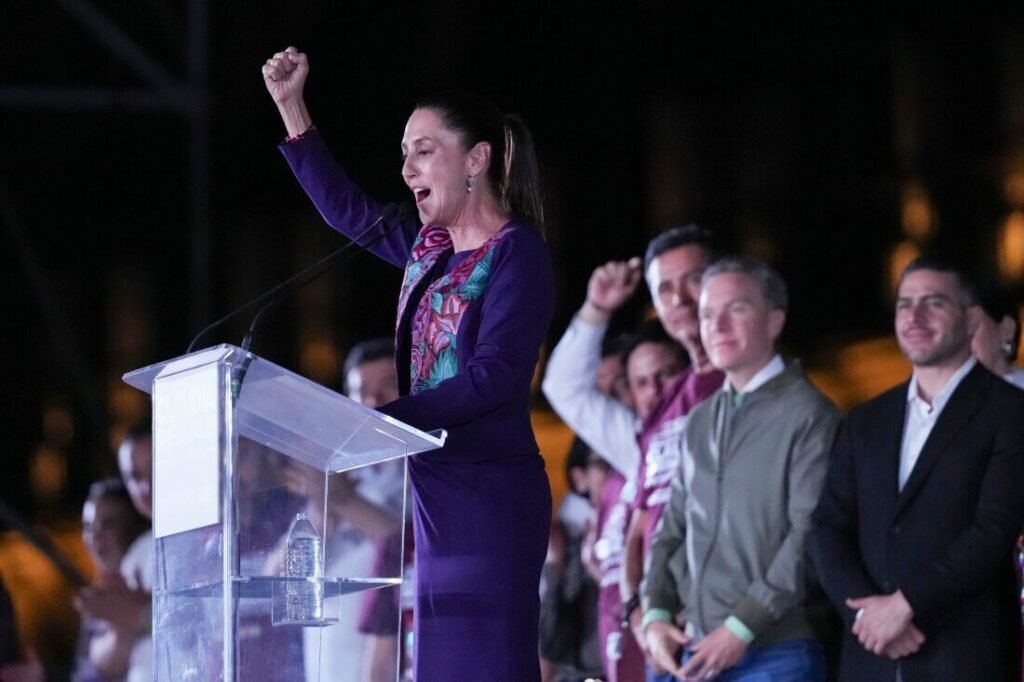On Tuesday, Claudia Sheinbaum achieved a historic milestone by becoming the first female President of Mexico. The 62-year-old Sheinbaum faces a challenging situation as she tackles urgent issues, including the faltering economy, rising crime rates, and the delayed completion of infrastructure projects.
Sheinbaum stressed women’s independence in her inauguration remarks, claiming she symbolizes all Mexicans who have fought for their rights. She promised to cut food and gas prices and help women and children. At the end of her address, she briefly mentioned drug cartels, which dominate much of the nation.
Sheinbaum will follow Andrés Manuel López Obrador’s “Hugs not Bullets” strategy of obtaining information without starting a new drug war. Sheinbaum, an idealistic socialist, differs from charismatic López Obrador despite this continuity. Political observers say López Obrador had universal support whereas Sheinbaum must prove she can govern. Political analysts contend that while Sheinbaum must show she is a capable leader, López Obrador benefited from widespread backing.
Sheinbaum has several formidable obstacles, including a nation split by López Obrador’s policies and a sharp rise in drug-related crime across the board. As she begins her presidency, she plans to travel to Acapulco, devastated by hurricanes; Hurricane John just passed there. Her efforts to bring about peace are made more difficult by the continuous uptick in violence in cartel-dominated cities like Culiacan.
First female President of Mexico inherits an economy in turmoil along with unrealized projects, cash giveaway programs, and a budget deficit. Trump’s tariffs and immigration policies complicate his chances of winning the U.S. presidential election. Sheinbaum is still optimistic about economic cooperation, pointing out that it strengthens the bonds among the three North American nations. Her initiatives to combat climate change, improve energy efficiency, and promote renewable energy show her dedication to a sustainable Mexico.








